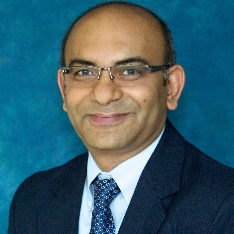Executive Committee
The Lupus ABC Executive Committee (EC) is a subcommittee of the Lupus ABC Research Committee comprising the following nine RC members: the two RC and LVC Co-Chairs, one FDA representative (ex officio), two academic and one industry members, and one ACR representative (ex officio). The EC enables decision-making between the quarterly Research Committee meetings and provides guidance to the LRA staff in the operationalization of the activities of Lupus ABC.
Executive Committee Members:
Click to view bio
Gary A. Koretzky, M.D., Ph.D. (Co-Chair) – Vice Provost for Academic Integration, Cornell University; Professor, Department of Medicine, Weill Cornell Medicine

Gary Koretzky, M.D., Ph.D. obtained his M.D. and Ph.D. (Immunology) degrees at the University of Pennsylvania (’84). He then pursued clinical training in Internal Medicine and Rheumatology at the University of California at San Francisco. He went on to re-enter the laboratory at UCSF as a post-doctoral fellow, examining the molecular events associated with immune cell activation. Dr. Koretzky later moved to the University of Iowa in 1991, continuing his research examining the biochemistry and molecular biology of signal transduction in hematopoietic cells. In 1999, Koretzky joined the faculty at the University of Pennsylvania in the Department of Pathology and Laboratory Medicine and as Director of the Signal Transduction Program of the Abramson Family Cancer Research Institute. At Penn, he was an Associate Director of the M.D./Ph.D. program, served as Chief of the Division of Rheumatology from 2006-2008, and as the Francis C. Wood Professor of Medicine and Vice Chair for Research and Chief Scientific Officer in the Penn Department 2008-2013. In 2013, Dr. Koretzky moved to Weill Cornell Medical College as the Vice Dean for Research and the Dean of Weill Cornell Graduate School. In 2017, Dr. Koretzky moved to Ithaca as Vice Provost for Academic Integration to build research programs between the Ithaca and New York City campuses and as the inaugural Director of the Cornell Center for Immunology.
Barbara Mittleman, M.D. (Co-Chair) – Global Head, Cell Therapy for Rheumatology, AstraZeneca
Barbara Mittleman, M.D. Is a rheumatologist and immunologist. Trained clinically at the University of Pittsburgh, she undertook post-doctoral research training at NIH in the labs of Fred Steinberg and Gene Shearer, examining cellular immune aspects of SLE in mouse models and patients. During her NIH time she served as the rheumatologist in the cGVHD program, started NIAMS’ outreach clinic in DC to underserved patients, and was the founding Director of NIH’s Public-Private Partnership Program. She left NIH in 2013 and has had diverse roles in industry involving preclinical science, biomarkers, and clinical development. She is now Global Clinical Head of Rheumatology Cell Therapy at AstraZeneca, supporting programs in SLE/LN, myositis, scleroderma, RA and other autoimmune indications with CAR-T cells and other modalities. Her work in Public-Private Partnerships and SLE combine to make her very excited to serve as the industry co-chair of the Lupus ABC.
Alvina Chu, M.D. – Executive Medical Director, Immunology Clinical Development, AbbVie

Alvina is a practicing rheumatologist with a 15-year career in the clinical development of therapeutic products for immunologic conditions and hematologic malignancies. Alvina holds a longstanding commitment to basic, translational, and clinical research in lupus and began her industry career clinically evaluating a treatment for systemic lupus erythematosus.
Alvina holds a Bachelor of Science degree from Stanford University and a Doctor of Medicine degree from the University at Buffalo School of Medicine. She completed an internal medicine residency at the University of Chicago Hospitals and a rheumatology fellowship at Stanford University Medical Center, where she continues to teach and care for patients.
Vijay Kumar, M.D. (non-voting) – Acting Director, Super Office of Therapeutic Products, Center for Biologic Evaluation and Research (CBER), Food and Drug Administration (FDA)

Dr. Vijay Kumar is currently the Acting Director of the Super Office of Therapeutic Products at the Center for Biologic Evaluation and Research (CBER), Food and Drug Administration (FDA). He is a fellowship trained, board certified, adult nephrologist. He received his medical degree (MD) from the Mysore Medical College and Research Institute, Mysore, India. Following residency in Internal Medicine, he completed Nephrology fellowship at University of Texas-Southwestern School of Medicine, Dallas, USA.
After two decades of clinical practice, he joined the FDA as a Medical Officer in 2020. During his time in OTP, he has reviewed multiple CBER regulated biological products, including gene therapies, genome editing therapies, cell therapies, plasma proteins, and biologic devices for a variety of renal and non-renal indications. He currently serves on the Kidney Interagency Coordinating Committee and has represented OTP at Kidney Health Initiative, Kidney X Incubator, Critical Path Institute, and Kidney Disease Clinical Trialists Workshop.
Judith Mills, M.B.S. – Lupus Voices Council Co-Chair, Biomedical Scientist, Advocate, and Person Living with Lupus

Judith Mills, M.B.S. is a biomedical scientist, a TEDx speaker, and adjunct professor at Kean University specializing in alopecia, disability, health, and lupus advocacy. She was diagnosed with lupus after three years with symptoms like fatigue, loss of appetite, body aches, and hair loss.
Seeking support, Judith first contacted the local New Jersey chapter of the Lupus Foundation of America (LFA) while pursuing a B.S. in Biology. She organized a student support group for individuals with disabilities and fundraising clubs for lupus.
In 2003, Judith formed Team MSU at Montclair State University for a local LFA walk. She also joined the now Lupus Research Alliance (LRA), supporting the NJ Walk with Us to Cure Lupus and participated in its Multicultural Task Force.
In 2011, she founded the nonprofit Butterfly Walkers Inc. while working towards a graduate degree in Biomedical Science. She has generated lupus awareness on television shows, serves with the Montclair Township Council, and has secured mayoral proclamations for lupus awareness in several NJ cities. Judith’s dedication has earned several awards from the LFA and the LRA.
Judith serves on the Lupus ABC to collaborate with fellow researchers and add her perspective as a person with lupus. She hopes Lupus ABC prioritizes precision medicine and encourages development of medications with minimal side effects.
Despite shattered dreams as a track star, Judith remains a runner, “not for track and field, but for the race of life.”
Nikolay Nikolov, M.D. – Director, Office of Immunology and Inflammation, Office of New Drugs, CDER, FDA.

Dr. Nikolay P. Nikolov is a board-certified Internist and Rheumatologist who joined FDA in 2009 as a Medical Officer and is currently the Director of the Office of Immunology and Inflammation, CDER. He completed his Internal Medicine residency at Lincoln Medical Center, Bronx, NY and then joined National Institute of Arthritis and Musculoskeletal and Skin Diseases (NIAMS), NIH, where he completed his rheumatology fellowship, participated in clinical investigational protocols and studied cellular and molecular mechanisms of autoimmunity in animal models at NIAMS. Then, Dr. Nikolov joined the Sjögren’s Syndrome Group at the NIH, as a clinical investigator where he conducted clinical and translational protocols in systemic lupus erythematosus (SLE) and Sjögren’s syndrome. At the FDA Dr. Nikolov is involved in the regulatory review of immuno-modulatory therapies, including small molecules, biologics and biosimilars, for the treatment of pediatric and adult rheumatologic diseases. He participates in the development of the Agency’s policies in these areas.
Rosalind Ramsey Goldman, M.D., Ph.D. – Professor of Medicine, Rheumatology; Research Professor, Solovy Arthritis Research Society Professor of Medicine Medical Director, Clinical Research Unit
Northwestern University

Rosalind Ramsey-Goldman, MD, DrPH, is the John P. Gallagher Research Professor of Rheumatology at Northwestern University Feinberg School of Medicine and an attending physician for Northwestern Medicine located in Chicago, IL, USA. Dr. Ramsey-Goldman’s research program examines risk factors to minimize complications in lupus though national and international collaborations, she studies genetic risk factors for disease severity/susceptibility; collaborates on investigations studying pathogenesis of disease; develops disease classification criteria, flare assessments, nephritis guidelines, disease impact (damage and frailty), assessment of patient-reported outcomes (NIH funded clinical trial, Lupus Intervention Fatigue Trial (LIFT) testing a physical activity and diet intervention to mitigate fatigue), and developed computable phenotype tools to detect SLE patients in the electronic medical record. Dr. Ramsey-Goldman has longstanding expertise in examining and understanding health disparities and preventable conditions with community and academic input. She was the PI a community-based program, REACH LUPUS, for three Hispanic Communities in Chicago from one Latino-Hispanic Mexican American Community in Chicago (Pilsen) and for two LUPUS CONVERSATIONS collaborative programs for African American lupus patients in greater Chicago and Boston (Dr. Candace Feldman, site PI Boston). All projected used the CDC validated Popular opinion Leader model to train community leaders to disseminate information to improve norms and health behaviors and to improve health in marginalized communities. Dr. Ramsey-Goldman has been a member of the Systemic Lupus International Collaborating Clinics (SLICC) for over twenty years, was chair of SLICC from 2004-2008, and is currently serving as the co-chair for the SLICC World Lupus Committee.
Dr. Ramsey-Goldman has served in multiple areas for the American College of Rheumatology, including Chair of the Committee on Research and for the Collaborative Initiatives Committee, Co-Editor for Arthritis and Rheumatology, and has been recognized as a Master of the ACR. Dr. Ramsey-Goldman has served on multiple committees for Lupus Therapeutics/LuCIN (Lupus Clinical Investigators Network) including the Site Selection and Evaluation Committee, Steering Committee, and the Planning Committee for 2025 Community Meeting.
Zahi Touma, M.D, Ph.D. – Associate Professor of Medicine and Clinician-Scientist, University of Toronto, Scientist, Schroeder Arthritis Institute and Krembil Research Institute

Dr. Zahi Touma, M.D, Ph.D. is an Associate Professor of Medicine, Clinician-Scientist with the University of Toronto and Scientist with the Schroeder Arthritis Institute and Krembil Research Institute. Dr. Touma is Director of the Lupus Program and Staff Rheumatologist with the University Health Network (UHN)/Mount Sinai Hospital, and Adjunct Scientist with the Institute for Work and Health. Appointed the inaugural Dr. Murray B. Urowitz Chair in Lupus Research at UHN, his research is focused on patients with SLE and measurement science with a particular interest in the assessment of disease activity, patient reported outcomes and cognitive function. One of his most significant contributions has been the development of the SLE disease activity indices – the SLEDAI Responder Index-50 (S2K RI-50) and SLEDAI-2K Glucocorticoids Index (SGI).
Dr. Touma is a Co-Chair of the Criteria Subcommittee of the Quality-of-Care Committee of the American College of Rheumatology (ACR) for the development of classification and response criteria for rheumatic diseases. He established the NeuroLupus Program with the goal of developing improved methods of identifying cognitive impairment in SLE and understanding its course over time and impact on health-related quality of life and productivity. Dr. Touma also is a co-chair of the SLE OMERACT (Outcome Measures in Rheumatology) Working Group and sits on the Advisory Boards of Lupus Ontario and the Lupus Foundation of America. He has been appointed as the inaugural Dr. Murray B. Urowitz Chair in Lupus Research at UHN.
Veronica Vargas Lupo, M.B.A. – Lupus Voices Council Co-Chair, Advocate, Person Living with Lupus, and Daughter of Person Living with Lupus

Veronica Vargas Lupo is a Managing Director at Consello. She is renowned for spearheading business transformations, partnering with C-level executives, and digitally transforming business capabilities and operational processes based on smarter, data-driven decision making.
Veronica has lived with lupus for 18 years. She has been an active member of the Lupus Research Alliance Young Leadership Board since its inception in 2010 and was honored in 2018 at our annual Handbag Luncheon as our “Woman of Achievement’. Veronica is originally from Venezuela, where she grew up until moving to the U.S. as a teenager. Lupus is dear to her not only because she has lived with it but also because her mother has lupus.
Why Veronica says she is serving on the Lupus Voices Council: “Lupus ABC will, for the first time, truly give people who live with lupus and their caregivers a platform where they can be heard and involved in the treatment development process directly with all stakeholders. As someone who has lived with the disease for many years and knowing the wide range of symptoms that those of us with lupus experience, having a voice in this process is immensely important. It is so critical for our perspectives to be considered when designing clinical trials and measuring outcomes to develop tailored therapies in lupus.”
Janet Woodcock, M.D. – Former Acting Commissioner, U.S. Food and Drug Administration (FDA)

Janet Woodcock recently completed a long career at FDA. She served as Director of the Center for Drug Evaluation and Research for over twenty years in several stretches. Most recently she served as Principal Deputy Commissioner and prior to that as Acting FDA Commissioner. She held multiple other senior positions at FDA including at the Center for Biologics Evaluation and Research. She was the therapeutics lead for “Operation Warp Speed” during the COVID pandemic. Her most recent effort was spearheading a major reorganization of FDA’s foods program and the Office of Regulatory Affairs. Dr. Woodcock completed many major regulatory initiatives during her FDA tenure. She was instrumental in getting the biosimilars legislation enacted and worked to ensure adoption in the clinical community. Additionally, she worked with industry and Congress to bring about the first GDUFA. After passage of the legislation, she oversaw an extensive reorganization of the generic drug review program at CDER, that successfully met the aggressive targets of the legislation and led to eventual reauthorizing, with elimination of backlogs and approval of thousands of generic drugs.
As of December 10, 2025
